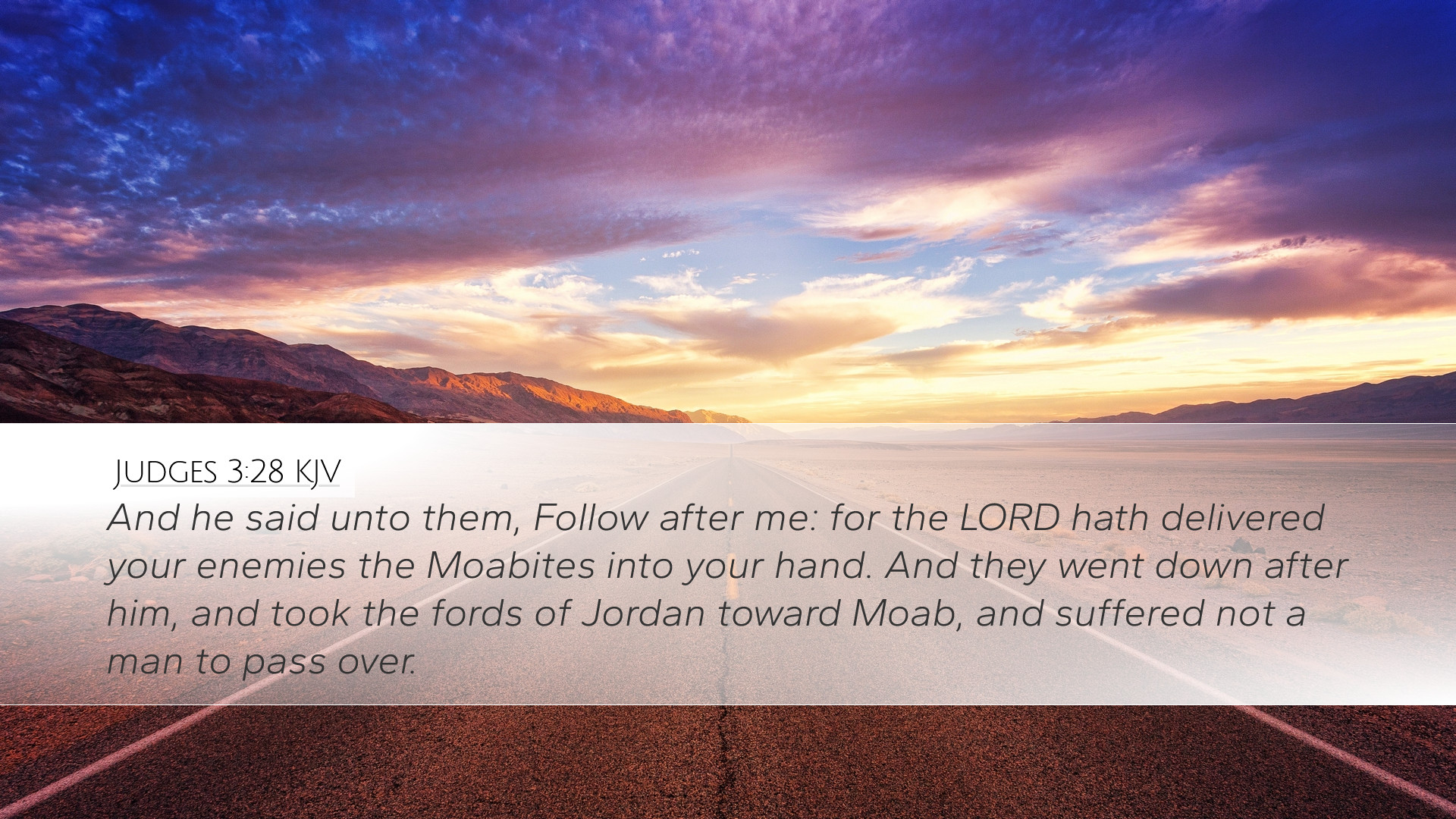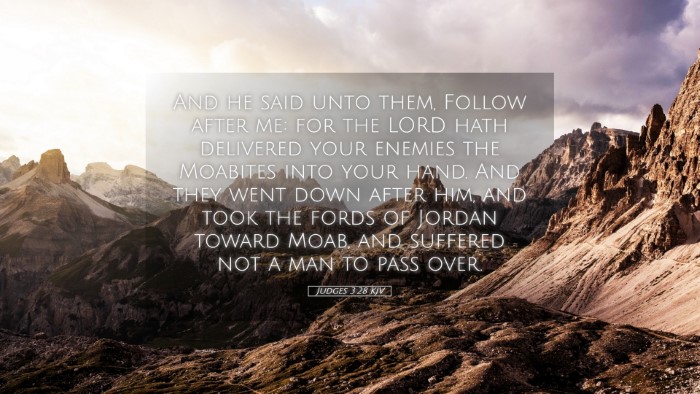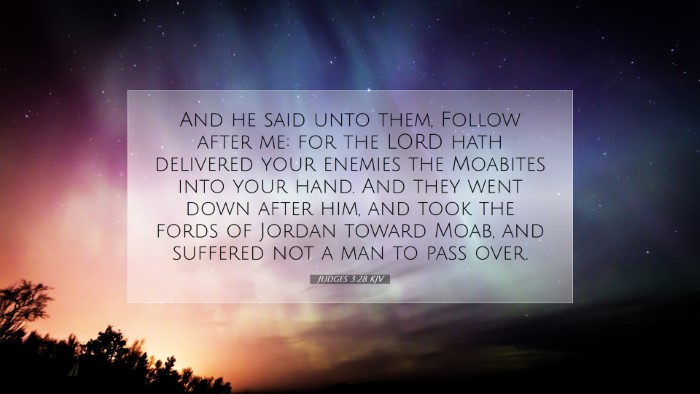Commentary on Judges 3:28
Verse: "And he said unto them, Follow after me: for the Lord hath delivered your enemies the Moabites into your hand. And they went down after him, and took the fords of Jordan toward Moab, and suffered not a man to pass over." (Judges 3:28)
Introduction
This verse is significant as it encapsulates the military strategy and the spiritual leadership demonstrated by Ehud during a critical period in Israel's history. In the narrative, we see themes of deliverance, obedience, and divine intervention. The following exposition draws from the insights of renowned biblical commentators such as Matthew Henry, Albert Barnes, and Adam Clarke.
Contextual Background
The Book of Judges portrays a time of upheaval in Israel when "everyone did what was right in their own eyes" (Judges 21:25). Ehud, the judge mentioned in this passage, was a deliverer raised by God to free the Israelites from the oppression they faced at the hands of the Moabites. His actions were pivotal in turning the tide against their enemies.
Historical Context
The Moabites had dominated Israel for 18 years following their conquest of the land. The Israelites' cry for help led God to raise Ehud, a left-handed man, who executed a clever assassination plan against Eglon, the king of Moab, thereby igniting the revolt against their oppressors.
Verse Analysis
This verse encapsulates key elements of leadership in Israel's deliverance:
- Divine Deliverance: "for the Lord hath delivered your enemies the Moabites into your hand." This phrase underscores the doctrine of divine sovereignty and Providence. As noted by Matthew Henry, the victory is attributed not to Ehud's prowess but to God’s intervention. This reminds us that victories in our spiritual and communal lives always find their roots in divine action.
- Call to Action: "Follow after me." This call signifies leadership and initiative. Ehud, having received direction from God, calls the people to action. Albert Barnes emphasizes the importance of human initiative following divine direction, showcasing how leaders must inspire their followers to act decisively in faith.
- Strategic Engagement: "took the fords of Jordan toward Moab." The action of seizing strategic points highlights the importance of preparedness and tactics in the face of conflict. Adam Clarke underscores that the fords were critical; controlling these passages prevented the Moabites from escaping or receiving reinforcements, thus ensuring the effectiveness of their military action.
- Preventing Escape: "and suffered not a man to pass over." This illustrates the totality of Israel’s victory and their commitment to follow through on God’s command. Matthew Henry reflects on the significance of thoroughness in dealing with sin and threats, as well as application of diligence in spiritual warfare.
Theological Implications
Ehud's story is rich with theological significance:
- God's Faithfulness: The verse reveals God’s unyielding faithfulness to His covenant people, always ready to deliver those who call upon Him in distress. This theme of divine help resonates throughout scripture, where human weakness is met with divine strength.
- Human Responsibility: While God provides deliverance, there is an expectation for humans to act in accordance with His will. The involvement of the Israelites in following Ehud reflects the synergy between divine sovereignty and human responsibility.
- Church Leadership: Pastors and teachers in the church can draw lessons on the qualities of effective leadership—drawing others into collective action, being clear about God’s deliverance, and executing strategies with divine guidance.
Practical Applications
From this verse, we can derive several practical applications:
- Leadership in Crisis: In times of crisis, leaders must exhibit clear communication and active guidance. Like Ehud, they should model trust in God's provision while arousing readiness among followers.
- Faith in Action: Faith is not a passive state; it requires action. Believers are called to respond actively to the divine initiatives in their lives and communities, participating in God’s work of reconciliation and deliverance.
- Strategic Planning: In both spiritual and temporal matters, strategizing and planning are essential. The wisdom of controlling 'fords' in our lives means identifying key areas where spiritual battles are engaged and ensuring we are prepared to face them.
Conclusion
Judges 3:28 serves as a powerful reminder of God’s deliverance and the role of human agency in fulfilling divine will. As we reflect on this passage, may we be inspired to lead with courage, trust God's faithfulness, and engage our communities in action that aligns with His purpose. Biblical leaders, students, and scholars alike should heed these lessons for advancing God's kingdom in their respective spheres of influence.


